My Comedy Career: Sarah Mills
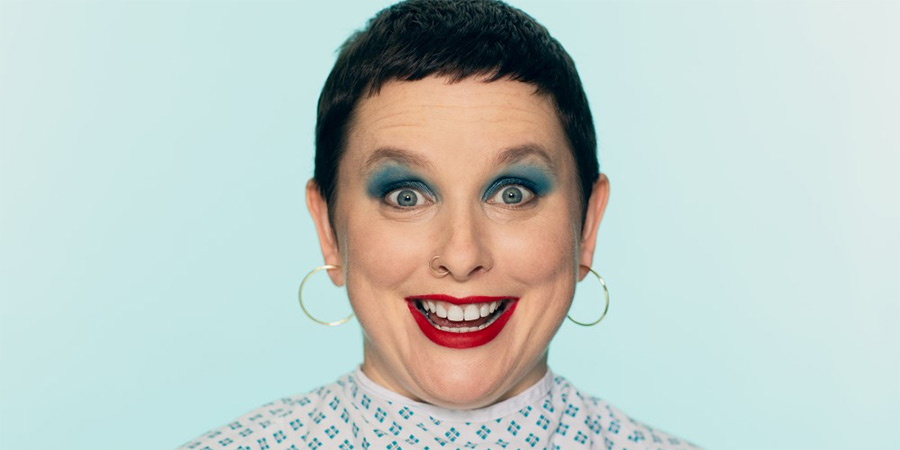
With her new series currently airing on Radio 4, we ask Sarah Mills how she organises her work.
Tell us what you do in your job.
I am a stand-up comedian, writer, presenter, content creator, campaigner, and someone that likes writing really long lists of jobs.
My latest project is a Radio 4 series called Sarah Mills' Bad Bod Squad which is airing on BBC Radio 4 at the moment (11pm, Wednesdays and then available afterwards on BBC Sounds). It's all about the hidden conditions that plague our silly human bodies, and why we should be more open about them. Things like being a bit leaky, or a bit creaky. I work on this with Gordon Kennedy at Absolutely Productions, who is a right laugh and a great producer despite being Scottish. And then we have an excellent script editor in Zoë Tomalin and wonderful support also from Antonia Gospel.
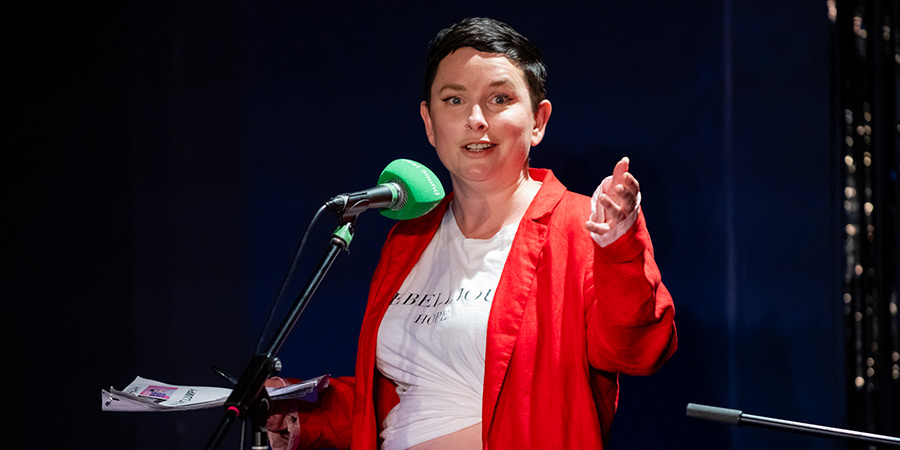
The biggest misconception about what I do is the idea that I'm mining for material all the time. People will often say "oh I bet you're making mental notes for your next set" when they're having a lively chat with their families or something like that - when I had tuned out 15 minutes prior. I'm never making mental notes about your life because I'm probably thinking about cake instead.
How did you first get involved in the comedy industry?
I worked in TV first - building my way up from doing work experience at the BBC and eventually working with people such as Jo Brand, Charlie Brooker and Matt Forde. I had a large detour into reality TV, including things like Geordie Shore, and a show on Channel 5 called Help! I've Got A High Maintenance Wife, which funnily enough has not made it onto my LinkedIn profile.
In order to become a stand-up I did Logan Murray's brilliant comedy course, and just started on the open mic circuit like so many many others.
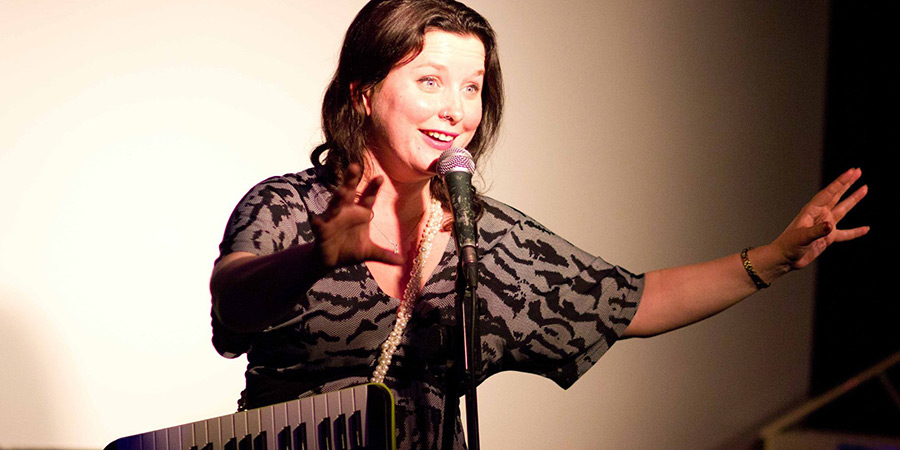
What key skills do you need to be able to do your job well?
I think, to be a good MC (which is something I love doing), you need to be able to listen and really pay attention to what audience members are telling you when you interact with them. And be respectful - you're trying to build a moment of connection with these people. I often see MCs be mean about the information audience members volunteer about their lives, and I think it creates a bad vibe and feeds into the sense that comedy needs to be adversarial. It doesn't. We can all have a lovely lovely time together.
I always take pride in the fact I remember audience members' names and create callbacks from the things they tell me across a night I am hosting.
The one thing I have learnt as a stand-up comedian is to keep your material fresh. I think you can lose the heart of a joke if you keep repeating it to audiences without thinking about it critically every so often. I've found myself repeating material by rote, and it doesn't land as well in those instances because I've forgotten why I found it funny in the first place.
And finally, there's a website called rhymezone.com which is essential for anyone wanting to write puns.
What has been your biggest career achievement to date?
Definitely getting the Bad Bod Squad commissioned by BBC Radio 4. It has been great to have the opportunity to share my stuff with a wider audience, to record the show in the town I grew up in (Stevenage), and to at least start a conversation around the embarrassing bits of our bodies and what happens when they go wrong.
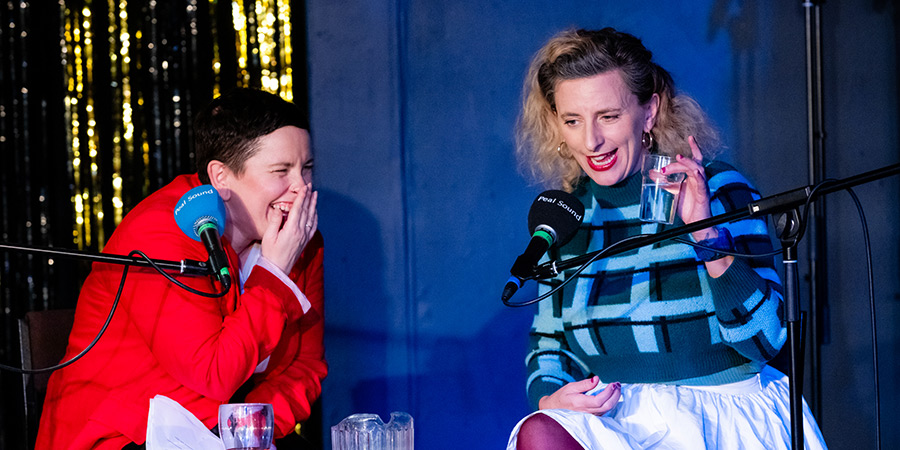
The starting point for the show is that I had bowel cancer a few years ago, and now live with a stoma as a result of that. So I'm sharing my own experiences of that as a way to help other people swerve a similar diagnosis, because embarrassment is often a reason people delay reporting their symptoms of this disease.
And what has been the biggest challenge/disappointment?
I was hoping to be cast on ITV2's Stand Up Sketch Show earlier in 2024, and when I got the email to say I hadn't made it, I burst into tears. I overcame that adversity with cake.
Talk us through a typical day.
I get up at 8, have breakfast, and try to allow just 30 minutes to catch up on emails. By lunchtime I have finished going through emails and it is time to get on with the day.
This can involve writing pitches, prepping material, listening to previous gigs to see how certain jokes have landed, going to meetings. I also work on a column in The Hollywood Reporter - Dear Remy - that I work on each week, and I do a lot of TV writing too - for example on Celebrity Deal Or No Deal that is coming out in December 2024, or a bunch of projects for Sky Kids.
Every day is different which is fun but also very admin-heavy and means you have to be very disciplined managing your own diary and keeping on top of things.
This is going to sound preachy as all hell, but I ring fence time for exercise and meditation - every day, almost without fail. I don't think you can be good at your job in this industry without looking after yourself, especially as it would be so easy to get consumed with the 'overwork' of it all - there's always enough prospective work, meetings, jokes to tweak, chasing emails to send that you could work 100 hour weeks if you want to. But you shouldn't. Also I need the exercise because of the aforementioned cake.
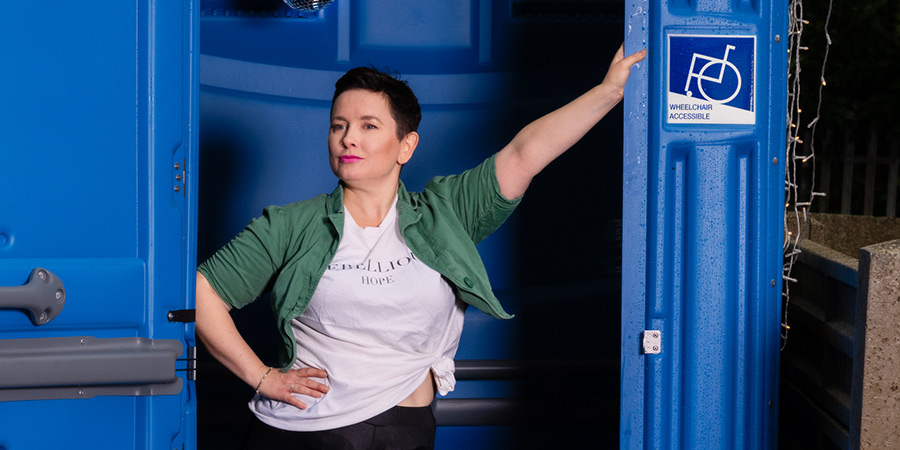
Tell us a trick/secret/resource that you use to make your job quicker/easier.
There's a website called randomwordgenerator.com which generates random words, and you can ask it to generate two words at a time (or more) and I have found that great ignition for jokes.
How are you paid?
I am self-employed - a 'sole trader' for tax reasons (apparently I could set myself up as my own company but that's too Jeff Bezos for my blood). So I invoice for all my work, and then also have a number of side hustles which are there to keep me alive when the months are quieter.
If you could change one thing about the comedy industry, what would it be?
I'd like for hecklers or audience members who pull focus at gigs to be automatically enlisted on a comedy course so that they can see how difficult it actually is to do stand-up. Like a sort of community service. They literally leave the gig and are escorted immediately to a week-long intensive.
I'd also like there to be more comedy hubs for comedians to meet and hang out with each other. It's a pretty lonely game - you work alone most of the time, it's just you and your material, so it would be nice if there was a friendly little place that all of us could go to hang out. Maybe a cake shop.
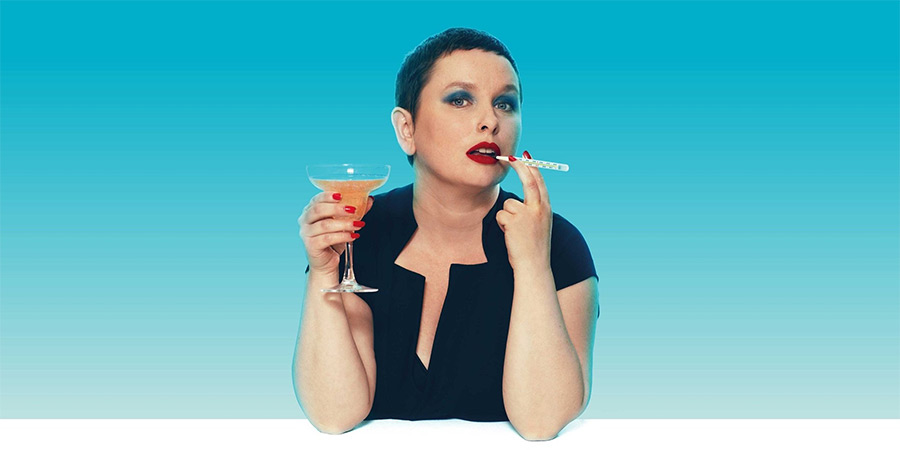
What tips would you give for anyone looking to work in your area of the industry?
That's a tricky one because I specifically am a comedian who talks about living with a stoma bag; which is not something you can simply acquire and I do not recommend having bowel cancer at all, frankly.
Joking aside, I do do plenty of gigs where that doesn't come into it at all and my advice for being good at stand-up is just to gig as much as possible - at gigs with an audience, and at gigs with different kinds of audiences, all across the country. And look at comedians who are ahead of you in the game to see what it is that they are doing that really makes their stuff elevated and zing along.
I hear that having a car is also a very good idea too. But I don't have one, so what do I know. Hopefully off the back of this article someone will set up a GoFundMe for me to have a car - a noble quest that would see me able to yell butt jokes at more audiences across the regions and nations.
This article is provided for free as part of BCG Pro.
Subscribe now for exclusive features, insight, learning materials, opportunities and other tools for the British comedy industry.



